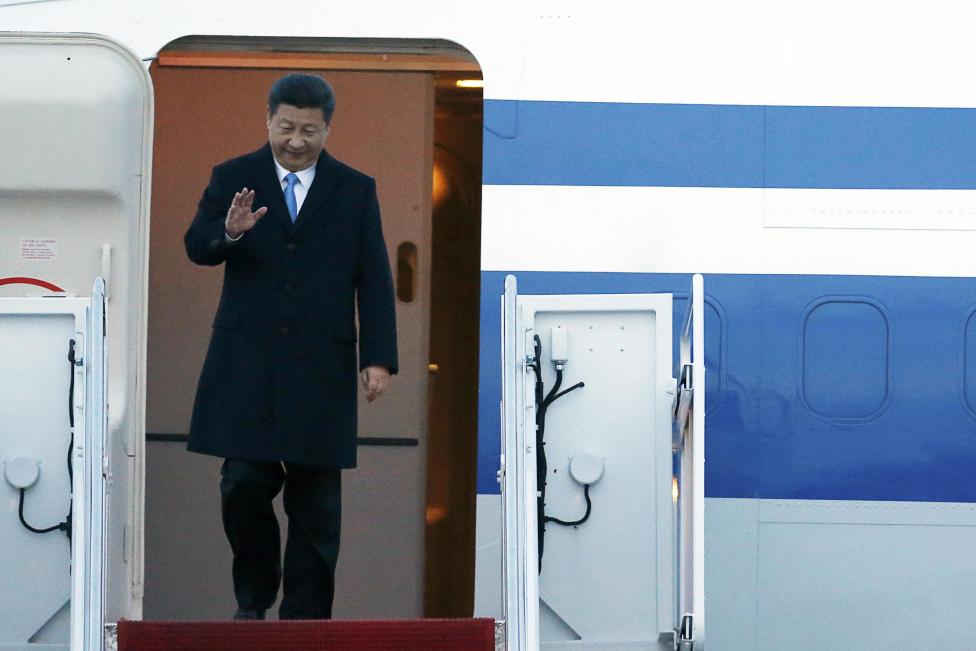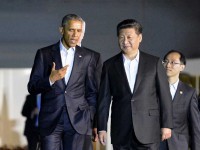Tao Wenzhao, Honorary Member of the Chinese Academy of Social Sciences; Fellow, CASS Institute of American Studies
Apr 12, 2016
The basic tone of China-US relations remains positive and cooperative, as the countries’ collaborative approach on Iran and the DPRK have shown in the past year. While differences are here to stay, particularly in the South China Sea, they can be managed -- thanks to the smooth channels of communication between the two sides and the recent bilateral agreement on mutual notification of major military actions and the rules of behavior for air and maritime encounters.

Mar 31, 2016
U.S. President Barack Obama and Chinese President Xi Jinping are likely to discuss North Korea, cybersecurity and human rights when they meet on Thursday before the Nuclear Security Summit in Washington, the White House said on Wednesday.
Mar 24, 2016
Chinese President Xi Jinping will push President Barack Obama next week to resume talks on the North Korean nuclear issue, a senior diplomat said on Thursday, a meeting that could also touch on hacking and the South China Sea.
Mar 01, 2016
President Xi Jinping will meet with US President Barack Obama soon, it was disclosed on Monday.

Yu Sui, Professor, China Center for Contemporary World Studies
Jan 21, 2016
As the two countries pursue a new major-power relationship, and China focuses on eliminating poverty for its citizens, there is more reason than ever for cooperation and easing mistrust. President Xi’s visit to the US was a herald for an expanding partnership, and issues like the South China Sea and third-party naysaying should not be allowed to disrupt relations.
Richard Weitz, Senior Fellow, Hudson Institute
Oct 15, 2015
Richard Weitz argues that Xi Jinping’s visit to the U.S. did not strengthen mutual trust between the two governments, and suggests that Washington and Beijing need to move from words to actions regarding Afghanistan, which is facing increased insecurity, and views China as an important regional partner.
Tom Watkins, President and CEO of the Economic Council of Palm Beach County, FL
Oct 14, 2015
The American media and the White House missed an opportunity to present President Xi’s visit in ways that highlighted the important cooperation made in areas such as Afghanistan, peacekeeping, nuclear security, wildlife trafficking and ocean conservation.

Don Bonker, Retired U.S. Congressman
Oct 09, 2015
The Chinese must view Donald Trump like a house of cards in portraying the ugly side of America's political culture. Mesmerizing, yes, but not realistic.
Jared McKinney, PhD student, S. Rajaratnam School of International Studies
Oct 08, 2015
Alternatively quoting or denouncing Thucydides is becoming an integral part of U.S.-China discourse. Jared McKinney argues that we should look at what Thucydides actually had to say: power transitions do not make war inevitable, and other variables—such as contests for honor and competing alliance systems—matter just as much.
Wu Zurong, Research Fellow, China Foundation for Int'l Studies
Oct 07, 2015
The relationship between a rising power and an established power has always been a complicated one. Since the 16th century, there have been four major cases of rising powers interacting with established world powers – all resulting in conflict. However, during the recent state visit by Xi Jinping to the United States, both countries eagerness to seek cooperation was on full display.